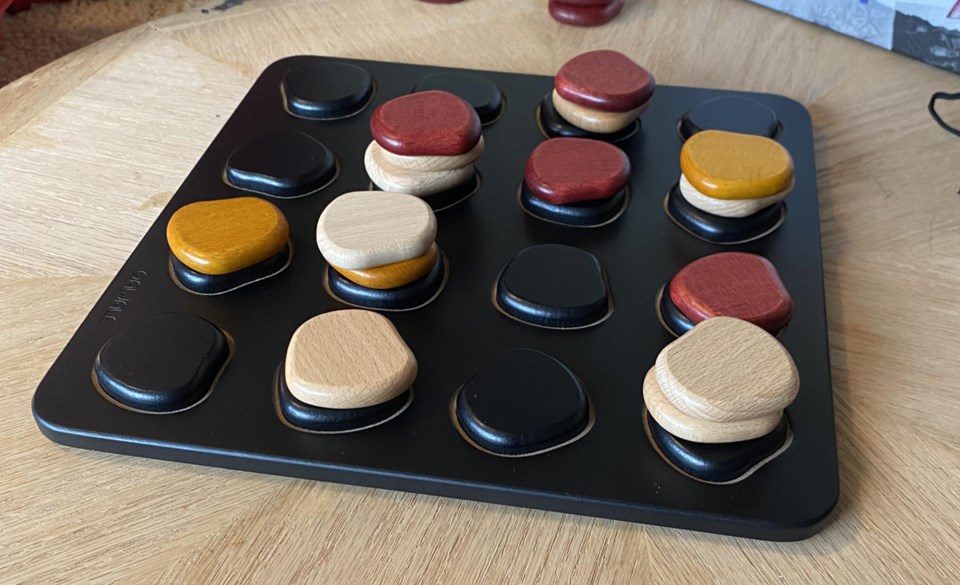YORKTON - To begin – an admission – I love wooden games.
It might be my age showing – being well on the north side of 60 – but there is something about wooden components which are just aesthetically pleasing and I gravitate to such games like a hummingbird to a honeysuckle flower.
Over the years Gigamic has produced some of the best looking wooden games on the market. The games look gorgeous and have not just wooden pieces, but wooden boards too. They are showcase quality – or at least coffee table or office desk worthy.
The range has included the confounding but outstanding Quarto, Pylos, Quantik and Quixo (which has a plastic board). All of the aforementioned are fine games. None are going to replace Go or Chess or Hive in terms of depth and complexity, but they offer their own challenges and are all of a shorter nature that can have its own merits.
And now we have Qawale – yes they seem to have a thing for ‘Q’ words.
Like its predecessors Qawale, from designers Romain Froger, and Didier Lenain-Bragard, is a two player abstract strategy game that looks incredible.
The board is black with raised spots for pieces which come in burgundy and a sort of squash yellow, with neutral pieces in a natural wood tone. Since the pieces stack in this game, the four colours create an ever-changing board panorama which is pleasing to the eye.
The game rules are about as simple as it gets, so you can give them a read and be exploring the game in no time.
The goal is simple, lay out pieces – you have eight per player -- and try to line up four stones in your colour.
From the Gigamic website we see “Qawale finds its inspiration in the piles of pebbles found along the paths.”
But more simply put this game borrows heavily from the base game idea of mancala games – you are collecting a pile of pieces here and distributing them one at a time around the board – which generally creates other piles of pieces as you go. It’s a mechanic used in games ranging from A Fistful of Meeples to Tak to Five Tribes and it generally creates intriguing games.
As noted, each player has eight pieces in their colour. The third colour is neutral and is placed in the four corners of the board.
On your turn, add a stone on top of any pile and move it. When moving a pile, you must leave a stone on each space you cross.
The neutral pieces are really interesting as they become something of a defensive tool often being manoeuvred into positions to hamper an opponent’s effort to achieve four-in-a-row.
The game is tricky, and you will find yourself wanting to play ‘just one more’ after every loss, meaning you might stretch a few coffee breaks with this one, but it’ll be worth it.
The great looks, easy play and fun results make this one a fine addition to a game room.
Check it out at






